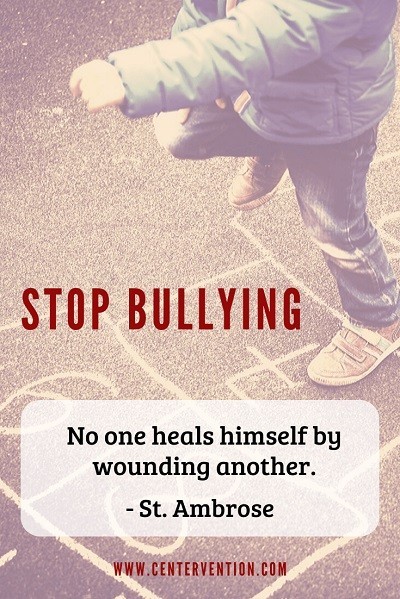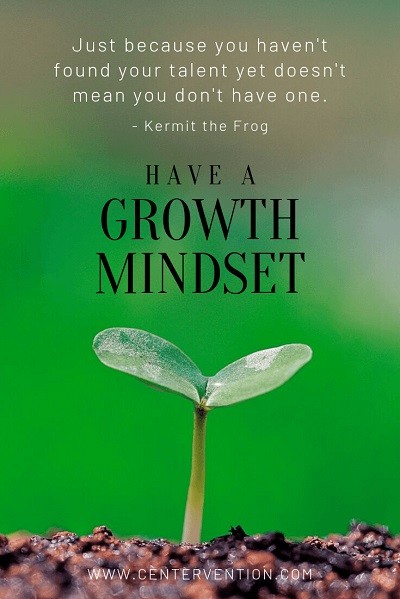95 Supplemental Social Emotional Learning Activities
Welcome to our supplemental Social Emotional Learning Activities page!
As you will see below, many of the supplemental SEL activities and lesson plans include characters from our game-based, social emotional learning interventions. And when you use the online programs with your students, these activities will reinforce the learning that occurs during game play.
These supplemental resources – lessons, activities, and worksheets – are in the following SEL skill areas: Communication, Cooperation, Emotion Regulation, Empathy, Impulse Control, and Social Initiation.
These resources are age-appropriate for elementary and middle school students and are typically used in a classroom or a small group setting. And in most cases, if materials are required for the activity, they are items that you already have in your classroom or office.
Note: Please share this page on your school website so other educators may also benefit.

Self Esteem Worksheets

SEL Check In

Cool Down Corner

Anger Iceberg

Coping Skills For Anxiety

Feelings Wheel

List of Emotions: 135 Words that Express Feelings

Impulse Control Activities for Kids
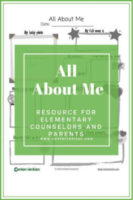
All About Me Worksheet

50 Positive Affirmations for Kids

Active Listening Exercises

Brain Breaks For Kids

SEL Books

Word Association Game

Would You Rather Questions For Kids

Morning Meeting Questions

Social Emotional IEP Goals

Self Care For Teachers

Responsible Decision Making Lesson

Body Language Mirroring

Conflict Resolution for Kids

Self Awareness Worksheets

Agree to Disagree: A Lesson About Perspective

How to be a Good Friend

Dealing with Change

How to Apologize

Social Cues and Social Competence

Voice Inflection

SEL Skill Printables

Think Sheet: Behavior Reflection Exercise

Emotional Awareness: What Makes Me Happy

Pass It On Game

Indoor Recess Activity: Pass The Hoop

Wrinkled Heart Activity

Eye Expressions: How We Communicate With Our Eyes
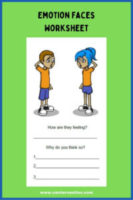
Emotion Faces Worksheet

Student Strengths Lesson

Anger Thermometer (Lesson and Printable)

A Gratitude Jar for Kids

How to Create a Bitmoji Classroom for SEL

Cooperative Learning Activity

SEL Classroom Scavenger Hunt

Summer Worksheets for Social Emotional Learning

Affirmation Cards for Kids

Mindfulness Activities for Kids

Acts of Kindness Worksheets for Kids

Social Emotional Learning Journal

Vision Board Ideas for Students in Elementary and Middle School

Emotional Check In Worksheet

Personal Space Worksheets for Students in Elementary School

Gratitude Worksheets for Students in Elementary School

Song About Feelings for Kids

The Worry Scale

Goal Setting Worksheet

Hurtful Words Lesson for Young Students

Stay Focused Worksheet for Students in Elementary School

Dealing with Disappointment Lesson and Printable

Following Directions Worksheets

Socially Appropriate Behavior Worksheet for Elementary School Students

Holiday Printables for Social and Emotional Learning

I Statements Worksheet

Separation Anxiety At School

How To Make Friends At School

Perfectionist Child: Lesson and Expert Tips

Expressing Feelings Without Blaming Activity

Impulse Control Printable: Melt or Freeze

Game Guides: Informational Posters for Zoo U, SS GRIN, and Hall of Heroes

Critical Thinking Worksheets

Peer Pressure Activities
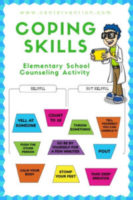
Coping Skills Worksheets

Social Skills Group Activities

Communication Skills Worksheets

I Have Who Has Game of Actions and Consequences

Mood Ring Colors: Identifying Emotions

Friendship Traits: Making and Keeping Friends Activity
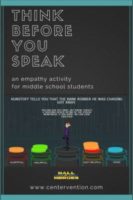
Think Before You Speak
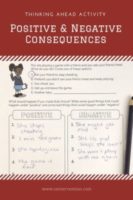
Positive and Negative Consequences

Emotional Regulation Activities

Identifying Emotions Activity: Chameleon Moods
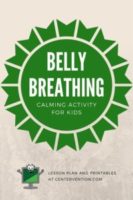
Belly Breathing for Kids

Find Someone Who

Emotion Charades for Kids: Feelings and Empathy

Freeze Game Activity

Body Language Game: Telephone Game
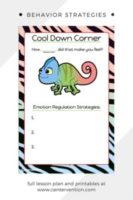
Calm Down Corner

Nonverbal Communication Activities for Students in Grades K-8

Perspective Taking Activities

Emotion Words to Convey a Range of Feelings

Circle of Control Worksheet for Students

Positive Self Talk for Kids

Staying on Topic Activity

Transition to Middle School: Opening Lockers

Tattling vs Telling
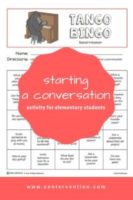
Conversation Starters for Kids

Feelings Worksheets: Understanding Big Emotions vs. Small Emotions

Feelings Faces Printable

Bullying Lessons Using Apples
Social Emotional Learning at Home

Developmental Milestones for Social and Emotional Skills

Do I have a Sad Child or Could it be Depression?

What to do when your child feels left out

What are the Warning Signs of ADHD?

Following Directions: Advice from Experts

Getting Ready for School: Avoid the Drama

Impulsive Behavior in Children
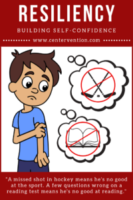
Lacking Self-Confidence: Expert Ideas and Tips to Help your Kids

Bullied at School: Expert Ideas to Help your Child

Meltdowns: How to Help your Child and Reduce Frustration
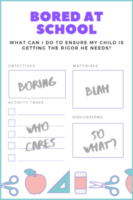
Bored at School and Academically Gifted

Making Friends at School
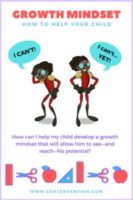
Growth Mindset for Kids

Strategies for Helping Your Child with School Refusal

Parent-Teacher Relationships to Help Your Child Thrive at School

How to Help Your Child Overcome Negative Thinking

My Child Has Difficulty Making Decisions: How Can I Help?

Angry Kid: How Can I Help My Son be Less Frustrated?
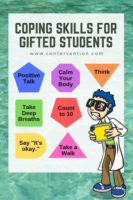
Coping Skills for Gifted Students
Additional Resources for Social Emotional Learning
Classroom Management Plan
Our classroom management plan is a step-by-step guide and includes proven strategies, tips and printables for elementary school teachers, and it covers four key components for establishing a successful, well-managed classroom.
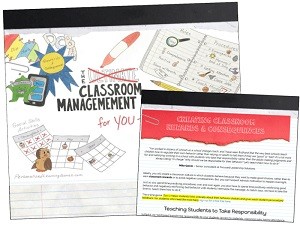
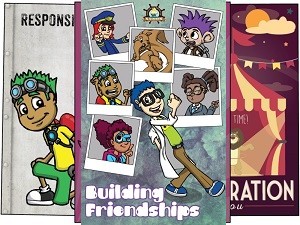
Classroom Decorations
These free downloadable posters will decorate your classroom and be great teaching resources, reinforcing social and emotional skills in your classroom and reminding students to practice their skills like emotion regulation, impulse control, empathy, and more.
Social Emotional Learning Quotes
For each of the topics below, we have curated a list of quotes. You can incorporate these quotes in your social emotional learning lessons, add them to social media images, create classroom posters, or write one on your whiteboard each day.


